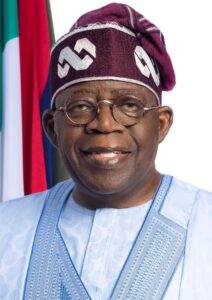
NNPC reports 72% AKK Pipeline completion, eyes green hydrogen future
The Nigerian National Petroleum Company Limited (NNPC Ltd.) has announced that the Ajaokuta-Kaduna-Kano (AKK) gas pipeline project has reached 72 per cent completion as of the first quarter of 2025—a key milestone in Nigeria’s energy infrastructure push.
Group Chief Executive Officer of NNPC Ltd., Mr Bayo Ojulari, shared this update during the 2025 edition of the Society of Petroleum Engineers’ Oloibiri Lecture Series and Energy Forum (SPE OLEF) held in Abuja. Represented by Executive Vice President, Upstream, Engr Udobong Ntia, Ojulari also revealed that the company is weaving green hydrogen feasibility studies into its long-term strategic plans.
As part of Nigeria’s ambition to achieve net-zero emissions by 2060, NNPC Ltd. has rolled out several gas-driven transition initiatives. Among these is the expansion of its autogas programme, which aims to convert over one million vehicles by 2026—underscoring the company’s commitment to a cleaner energy mix.
“In line with the nation’s Energy Transition Plan, we are pursuing critical backbone projects like the AKK pipeline, now over 70 per cent complete, and exploring the integration of green hydrogen. This marks a bold shift toward a diversified and sustainable energy future,” Ntia stated.
He made it clear that securing energy for over 200 million Nigerians remains a top priority. He also highlighted NNPC’s active role in power generation, contributing approximately 1,500MW to Nigeria’s grid through various joint venture initiatives, including 1,000MW from IPP phases one and two, 650MW from firm JV power, and 50MW from emergency power assets.
Themed “Driving Energy Sustainability Through Technology, Policy, and Supply Chain Excellence,” this year’s lecture reflected the urgent need for collaborative, tech-enabled solutions to energy challenges.
Ojulari remarked that the theme was both timely and essential, addressing the evolving landscape of global and local energy dynamics. Citing the International Energy Agency’s World Energy Outlook, he noted that global energy demand is projected to rise by more than 25 per cent by 2040—driven in large part by industrial growth in Asia and Africa’s booming population.
Africa’s youth population alone is expected to reach 800 million, a demographic shift that presents both a challenge and a tremendous opportunity for expanding energy access. Currently, over 600 million people on the continent remain without electricity—what Ojulari called a “development gap and a glaring opportunity for energy inclusion.”
Speaking virtually, Chairperson of the SPE Nigeria Council, Engr Amina Dalnmadami, reflected on OLEF’s significance since its inception in 1991. She described it as a powerful platform for fostering innovation, policy reform, and industry dialogue—honouring the landmark 1956 oil discovery in Oloibiri, Bayelsa State, which transformed Nigeria’s economic history.
Dalnmadami acknowledged the global tilt toward renewables but cautioned that oil and gas would continue to play a central role in Nigeria’s economic resilience and industrial development for years to come.
“Our path to sustainability isn’t about abandoning oil and gas; it’s about optimising our approach—using technology to drive efficiency, reinforcing our supply chains, and shaping smart, supportive policies,” she noted.
In a sponsor’s address, the Executive Secretary of the Petroleum Technology Development Fund (PTDF), Ahmed Galadima Aminu, reiterated the Fund’s ongoing commitment to OLEF since 2015. He described it as a vital engine for dialogue, forward-thinking, and policy coordination in Nigeria and Sub-Saharan Africa’s energy landscape.
According to him, OLEF is not just a celebration of past achievements but a beacon for future aspirations, powered by innovation, partnerships, and talent development.
Also speaking at the event, Chief Executive of the Nigerian Upstream Petroleum Regulatory Commission (NUPRC), Engr Gbenga Komolafe, outlined key initiatives being driven by the Commission—including the ambitious “Project 1 Million Barrels” plan.
Represented by Commissioner Enorense Amadasu, Komolafe said the initiative is a joint effort involving producers, financiers, service providers, and other stakeholders, aiming to raise daily oil output by one million barrels by 2026.
On exploratory activity, Komolafe confirmed the conclusion of the 2024 bid licensing round, with the award of 70 Petroleum Prospecting Licences (PPLs) and additional blocks. He added that NUPRC is now preparing for the 2025 round, consistent with the “drill-or-drop” policy under the Petroleum Industry Act (PIA).
He noted, “More than ten of the 2024 PPL awardees are already in production. That’s a significant win for the country.”
In a cautionary note, former Petroleum Minister Don Etiebet urged regulators to avoid issuing exploration licences to individuals or companies lacking the technical and financial capacity to drill. He also advised that leadership succession within indigenous firms should be based on merit and competence—not family ties.




